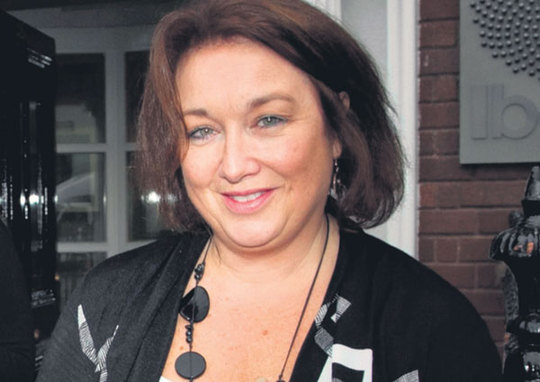UTTERLY unthinkable, profoundly unfair and almost unbearable to live with, the death of a child is every parent’s absolute worst nightmare.
But it happens, and when it does there just aren’t words to adequately describe the total devastation and overwhelming grief.
Words can’t heal the hurt, but they can help. Sometimes through talking, sometimes by listening or sometimes, when words seem pointless, just knowing there’s somebody around who understands the unique, searing pain.
Sharon Vard knows the feelings only too well. She would rather she didn’t, but the tragic death of her youngest daughter of an inoperable brain tumour in 2004 took her on a journey nobody wants to take.
“Rachel was just five. There’s nothing you can say, there’s nothing that’s going to make it better. It’s an ongoing journey without a destination,
? she tells Northside People.
“I would have thought Rachel the healthiest of my two children. She was a great bundle of joy.
?
Rachel had just finished junior infants when tragedy struck. She was complaining of tiredness and contracted chicken pox. Within a week she was diagnosed with a brain tumour and given months to live.
“There was absolutely nothing they could do for her,
? says Sharon.
“She had from July 8 until November 30.
“You feel robbed. Totally robbed. It’s the lost future, all the dreams. When your child dies I think one of the hardest things for parents is that as a mum or dad you’re always there for your child to make things better.
“But it’s completely out of your hands. You cannot change what has happened.
?
After Rachel died Sharon realised there was no organised support for parents who have lost children. However, she connected with other bereaved parents through Our Lady’s Hospice and they began meeting on a monthly basis at the Clarion Hotel in Liffey Valley.
The informal group then connected with parents from Cork and Anam Cara was born.
The national voluntary organisation now has nine groups dotted around the country, supporting bereaved parents and siblings. It’s a crucial service, filling a gap particularly for parents whose child dies outside a hospital or hospice setting when there’s often no access to bereavement services.
“What we say to parents is that we understand, we have felt that devastation, that intense grief, the exhaustion, the loneliness, the isolation,
? says Sharon.
“But it does change. We would say you won’t always feel the way you feel today.
“We’d encourage parents to talk about that pain and I suppose in a group like ours you can talk openly about it because often you won’t when you’re with family and friends. You want to protect them.
“A lot of bereaved parents will tell you that as time passes your grief doesn’t become this big wall in front of you, it becomes something you can walk alongside.
“It’s still there, but it loses some of its intensity, and I suppose you get used to it and you build your life around it.
“Our children are such an important part of us that we’re always going to remember them, they’re always going to be part of us and that’s very healthy.
?
Rachel says that grief is individual and no two people experience it the same way. She remembers being frustrated that her husband wasn’t accompanying her every day to Rachel’s grave and was finding solace in his own way.
“Even within an Anam Cara group you could have 12 parents sitting over a cup of tea and every one of them will be coping and surviving in different ways,
? she explains.
“And each way is right for them.
?
“Sometimes people will judge themselves and think they’re not doing as well as somebody else but you can’t do that. You have to find what helps you get through the day.
?
Next Wednesday (February 18) Anam Cara is hosting a Bereavement Information Evening from 7.30-9.30pm at Applewood Community Centre, Swords.
The guest speaker is bereavement therapist Peter Hanlon and the topic for the evening is
‘A Parent’s Grief and Loss’.
To confirm attendance email info@anamcara.ie or call 01-4045378 before Tuesday, February 17. All Anam Cara services are free to parents.
